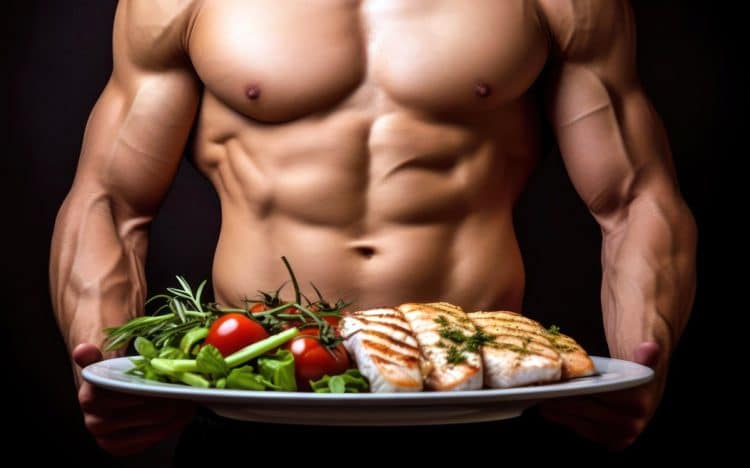Training is only half of the muscle-building equation; your diet matters, too. The food you eat provides your body with the energy and nutrients it needs to power you through intense workouts and repair and build your muscles. Not paying attention to your diet will severely undermine your progress.
However, sometimes, even a good diet is not enough to build muscle and gain weight. This is especially true if you are a naturally slim ectomorph, are a hard gainer, or have an active lifestyle.
If you are training hard and eating right but still struggling to pack on mass, maybe it’s time to try bulking. This age-old bodybuilding practice is all but guaranteed to increase muscle size and body weight.
In this article, we explain the nuts and bolts of bulking and provide you with an awesome seven-day 5,000-calorie meal plan for rapid muscle building.
What is Bulking?

Bulking is the practice of purposely overeating to gain weight rapidly, preferably in the form of muscle mass. This overeating creates a significant calorie surplus, which means you consume more calories than you burn. Your body then uses this energy for muscle repair and growth, as well as fueling your workouts.
During a bulk, exercisers lift weights to challenge their muscles and trigger hypertrophy or muscle growth. While any resistance training workout can achieve this goal, compound or multijoint exercises and heavy weights are the best prescription. Most people gain a lot of strength during a bulk.
This type of training is sometimes referred to as powerbuilding, as it combines elements of powerlifting with bodybuilding.
While the aim of bulking is to increase muscle size, fat gain is also common and usually unavoidable. Because of this, most bulks are followed by a lower-calorie cutting phase, during which excess fat is lost. The aim of the cutting phase is to lower your body fat percentage and reveal the details of the newly built muscle. Read more about Bulking vs. Cutting here.
While bulking is a common practice in bodybuilding, athletes in other sports also use this method to gain weight, including boxers and wrestlers who want to move up a weight class, football players, hockey players, and other sports where a larger body weight is beneficial.
The 10 Rules of Successful Bulking
While bulking should produce noticeable muscle growth and weight gain, a successful bulk is not simply a matter of eating as much as you can for a few weeks or months. In fact, such an approach is rarely effective.
Avoid the most common pitfalls by following the ten rules of successful bulking!
1. Create A Calorie Surplus
Most muscle-building diets suggest a calorie surplus of 300-500 per day. While this can be enough to build muscle, it’s going to be a slow process. Bulking is all about packing on mass fast, so you need a bigger surplus than usual. The size of your surplus depends on your metabolic needs, but 1000 to 2000 calories extra per day is not unheard of.
2. Macros Matter
While the number of calories you consume is critical during a bulk, where those calories come from also matters. There are three food groups, and you need an abundance of each for a successful bulk.
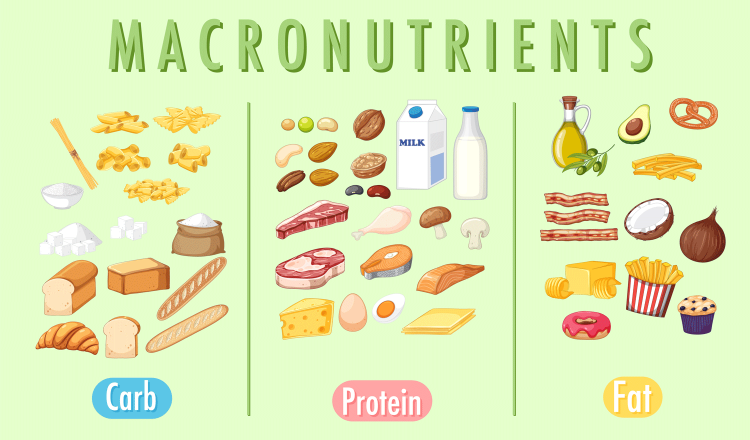
The ideal macro ratio for bulking is:
- Protein – 40%
- Carbohydrates – 40%
- Fats – 20%
This means that 40% of your daily calories should come from protein and carbs, while 20% should come from fat. This will provide a good balance between muscle-building proteins, energy-providing carbs, and hormone-regulating fats. Check out the macro calculator.
There are other bulking protein/carbohydrate/fat ratios you can try, including:
- 30/40/30
- 40/30/30
- 45/35/20
- 50/30/20
- 65/25/15
However, the common feature of all of them is the abundance of protein.
3. Protein, Protein, And More Protein
As hinted at in the point above, getting enough protein is critical for your bulking success. Your body needs protein for muscle repair and growth. Too little protein will undermine your progress and lead to poor muscle hypertrophy.
Most experts agree you should consume around 0.7 to 1.0 grams of protein per pound of body weight. However, most bulks exceed this recommendation by a wide margin. This ensures you really are providing your muscles with more of what they need to grow.
Good sources of protein during a bulk include:
- Chicken breast
- Lean beef
- Turkey
- Fish (salmon, tuna, cod)
- Eggs
- Greek yogurt
- Lentils
- Chickpeas
- Tofu
- Quinoa
4. It’s Okay Not to Eat Clean All the Time
Eating a lot of calories can be challenging when you eat mostly clean and healthy foods. That’s because many foods we consider healthy, i.e., vegetables and lean proteins, are also low in calories. If you eat clean all the time, you should expect to eat a lot of large meals each day.
Bulking is usually easier if you include a few less healthy foods in your bulking diet. Things like pizza, ice cream, candy bars, fried foods, etc., have a high energy density, so you don’t need to eat huge portions to ingest plenty of calories.
That doesn’t mean you can go on a no-stop junk food binge and call it bulking. However, you can include a few less healthy foods in your diet to supplement the clean foods you’re eating and boost your calorie intake. You can also enjoy the occasional cheat meal while bulking.
5. Lift Hard, Lift Heavy
While some fat gain is inevitable during a bulk, you’ll gain almost nothing but fat if you don’t combine bulking with a suitable strength training workout. Hard and heavy strength training triggers muscle growth, giving the extra food you are eating somewhere else to go other than your fat stores.
Build your workouts around compound exercises like squats, deadlifts, bench presses, pull-ups, overhead presses, and bent-over rows. These exercises stimulate multiple muscle groups, making the best use of your training time and energy. Focus on getting stronger in a handful of key lifts to pack on mass as fast as possible.
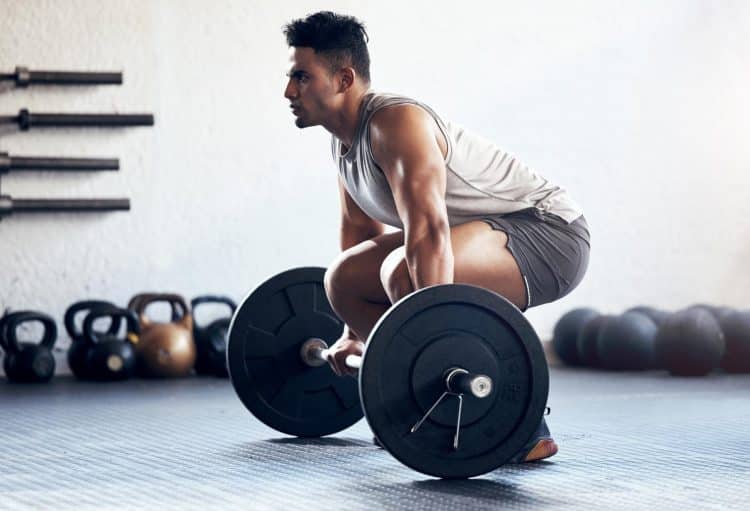
6. Rest and Recover Like A Boss
Intense strength training takes a lot out of your body. It uses energy, both physical and mental, and causes muscle breakdown. For muscle growth to occur, you need to balance your workouts with adequate rest and recovery.
This means you should avoid unnecessary additional physical activity so you have more of the resources you need for muscle growth. So, no pick-up games of basketball with your buddies, no weekend social soccer, and no extra cardio.
Instead, do whatever you can to promote recovery between workouts, e.g.:
- Massage
- Foam rolling
- Contrast (hot/cold) showers
- Hot tub
- Saunas/steam baths
- Stretching
Try to save most of your energy for training and recovering from training. Remember that additional physical activity could impede muscle growth.
7. Sleep Well, Grow Well
Your body does most of its muscle building when you are asleep. With no conscious functions to perform, it has the time and energy it needs to repair and rebuild the muscles you’ve torn down in training. Anabolic (muscle-building) hormone production increases while you sleep, as does protein synthesis.
Failing to get enough sleep could severely undermine your gains, so strive to get 7-9 hours of quality sleep each and every night.
Read more about the importance of sleep here.
8. Track Your Progress
Bulking should provide measurable results. However, you won’t know if your hard work is paying off unless you track your progress. You might think your bulk is working, only to find that after a month, your body has not changed.
So, track your progress to ensure your diet and workouts are producing the anticipated results. Ways to do this include:
- Your weight.
- Your body composition/body fat percentage.
- Arm, thigh, and chest measurements.
- Your waist measurement.
- Progress photographs.
- Feedback from a trusted friend or partner.
Don’t rely on one single progress-tracking method. Instead, use several to get a fuller picture of how you are doing.
9. Know When to Stop
Compared to cutting, bulking is a breeze. You get to eat lots of food, you’ll feel strong and full of energy, and your muscles will get noticeably bigger from week to week. Because of this, it can be tempting to continue bulking for too long.
Unfortunately, muscle gained through bulking is also accompanied by fat gain, and too much body fat is bad for your appearance and health.
So, set an endpoint to your bulk. This can be when you hit a specific body weight target or body fat percentage or just a predetermined timeframe, e.g., eight weeks. Avoid so-called perma-bulking, which is unhealthy and can lead to obesity.
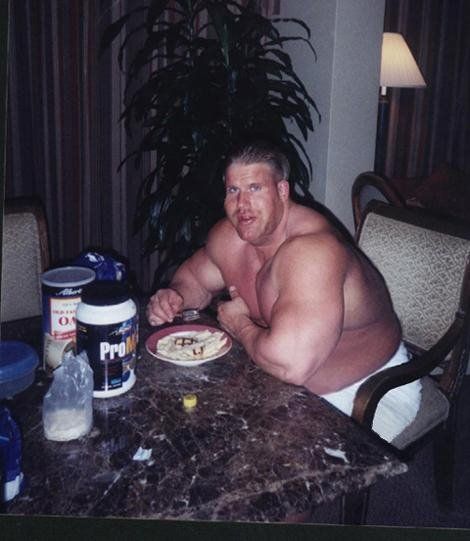
10. Supplement Wisely
While you can bulk successfully without supplements, there are some products that could make things a little easier.
Useful supplements for use during a bulk include:
- Protein Powder
- Creatine
- Branched-Chain Amino Acids (BCAAs)
- Pre-Workout Supplement
- Multivitamins
- Omega-3 Fatty Acids (Fish Oil)
- Glutamine
- Beta-Alanine
- Vitamin D
- ZMA (Zinc, Magnesium, Vitamin B6)
- Mass Gainers
- L-Glutamine
- HMB (Beta-Hydroxy Beta-Methylbutyrate)
Please note that while supplements can complement a bulking diet and training routine, they cannot replace whole foods or a balanced diet.
7-Day 5,000 Calorie Meal Plan for Rapid Bulking
You now have all the information you need to create a bulking diet plan of your own. But, to save you the bother, we’ve written one for you! Make adjustments based on your needs and goals, and feel free to replace any foods or meals you don’t enjoy.
Monday:
Meal 1:
- 4 Whole Eggs
- 1 Cup Greek Yogurt
- 1 Bagel
- 16 Ounces of Whole Milk
Calories: 960 | Fat: 37g | Carbs: 85g | Protein: 73g
Meal 2:
- 2 Scoops Whey Protein
- 2 Tbsp Natural Peanut Butter
- 1 Cup of Oats
- 1 Apple (Blend into a shake.)
Calories: 830 | Fat: 23g | Carbs: 99g | Protein: 62g
Meal 3:
- 10 Ounces of Chicken
- 2 Cups Quinoa
- Broccoli and Asparagus
- 16 Ounces of Whole Milk
Calories: 1190 | Fat: 38g | Carbs: 112g | Protein: 88g
Meal 4:
- 2 Scoops Whey Protein
- 2 Tbsp Almond Butter
- 1 Cup of Blueberries
- 1 Banana (Blend into a shake.)
Calories: 860 | Fat: 24g | Carbs: 100g | Protein: 61g
Meal 5:
- 10 Ounces of Beef
- 2 Cups Sweet Potato
- Green Beans and Carrots
- 16 Ounces of Whole Milk
Calories: 1080 | Fat: 24g | Carbs: 130g | Protein: 88g
- 2 Cups Cottage Cheese
- 1 Cup Mixed Berries
Calories: 450 | Fat: 5g | Carbs: 30g | Protein: 75g
Total for Day 1: Calories: 5370 | Fat: 151g | Carbs: 556g | Protein: 447g
Tuesday
Meal 1:
- 4 Whole Eggs
- 1 Cup Cottage Cheese
- 2 Slices Whole Grain Bread
- 16 Ounces of Whole Milk
Calories: 975 | Fat: 39g | Carbs: 83g | Protein: 68g
Meal 2:
- 2 Scoops Plant-Based Protein Powder
- 2 Tbsp Almond Butter
- 1 Cup of Quinoa
- 1 Pear (Blend into a shake.)
Calories: 820 | Fat: 22g | Carbs: 95g | Protein: 59g
Meal 3:
- 10 Ounces of Turkey
- 2 Cups Brown Rice
- Steamed Broccoli and Cauliflower
- 16 Ounces of Whole Milk
Calories: 1200 | Fat: 36g | Carbs: 112g | Protein: 94g
Meal 4:
- 2 Scoops Plant-Based Protein Powder
- 2 Tbsp Cashew Butter
- 1 Cup of Mixed Berries
- 1 Banana (Blend into a shake.)
Calories: 840 | Fat: 24g | Carbs: 105g | Protein: 56g
Meal 5:
- 10 Ounces of Salmon
- 2 Cups Quinoa
- Steamed Asparagus and Zucchini
- 16 Ounces of Whole Milk
Calories: 1220 | Fat: 39g | Carbs: 118g | Protein: 92g
- 2 Cups Greek Yogurt
- 1 Cup Mango Chunks
Calories: 440 | Fat: 4g | Carbs: 62g | Protein: 40g
Total for Day 2: Calories: 5495 | Fat: 164g | Carbs: 575g | Protein: 409g
Wednesday
Meal 1:
- 4 Whole Eggs
- 1 Cup Quark (a high-protein dairy product)
- 2 Whole Grain Waffles
- 16 Ounces of Whole Milk
Calories: 945 | Fat: 36g | Carbs: 78g | Protein: 74g
Meal 2:
- 2 Scoops Casein Protein Powder
- 2 Tbsp Sunflower Seed Butter
- 1 Cup of Muesli
- 1 Peach (Blend into a shake.)
Calories: 850 | Fat: 22g | Carbs: 104g | Protein: 54g
Meal 3:
- 10 Ounces of Pork
- 2 Cups Quinoa
- Steamed Green Beans and Carrots
- 16 Ounces of Whole Milk
Calories: 1250 | Fat: 40g | Carbs: 116g | Protein: 98g
Meal 4:
- 2 Scoops Casein Protein Powder
- 2 Tbsp Almond Butter
- 1 Cup of Mixed Berries
- 1 Apple (Blend into a shake.)
Calories: 840 | Fat: 23g | Carbs: 103g | Protein: 51g
Meal 5:
- 10 Ounces of Chicken
- 2 Cups Brown Rice
- Steamed Broccoli and Cauliflower
- 16 Ounces of Whole Milk
Calories: 1210 | Fat: 38g | Carbs: 112g | Protein: 99g
Meal 6:
- 2 Cups Greek Yogurt
- 1 Cup Pineapple Chunks
Calories: 430 | Fat: 4g | Carbs: 60g | Protein: 40g
Total for Wednesday: Calories: 5525 | Fat: 163g | Carbs: 573g | Protein: 416g
Thursday
Meal 1:
- 4 Whole Eggs
- 1 Cup Low-Fat Cottage Cheese
- 2 Slices Whole Grain Bread
- 16 Ounces of Whole Milk
Calories: 955 | Fat: 37g | Carbs: 80g | Protein: 76g
Meal 2:
- 2 Scoops Plant-Based Protein Powder
- 2 Tbsp Almond Butter
- 1 Cup of Rolled Oats
- 1 Kiwi (Blend into a shake.)
Calories: 840 | Fat: 22g | Carbs: 105g | Protein: 57g
Meal 3:
- 10 Ounces of Turkey
- 2 Cups Sweet Potato
- Steamed Brussels Sprouts
- 16 Ounces of Whole Milk
Calories: 1220 | Fat: 36g | Carbs: 128g | Protein: 100g
Meal 4:
- 2 Scoops Plant-Based Protein Powder
- 2 Tbsp Cashew Butter
- 1 Cup of Mixed Berries
- 1 Banana (Blend into a shake.)
Calories: 850 | Fat: 23g | Carbs: 100g | Protein: 56g
Meal 5:
- 10 Ounces of Salmon
- 2 Cups Brown Rice
- Steamed Asparagus and Carrots
- 16 Ounces of Whole Milk
Calories: 1210 | Fat: 38g | Carbs: 123g | Protein: 91g
Meal 6:
- 2 Cups Greek Yogurt
- 1 Cup Sliced Strawberries
Calories: 420 | Fat: 4g | Carbs: 54g | Protein: 46g
Total for Thursday: Calories: 5495 | Fat: 160g | Carbs: 590g | Protein: 426g
Friday
Meal 1:
- 4 Whole Eggs
- 1 Cup Low-Fat Greek Yogurt
- 2 Whole Grain Waffles
- 16 Ounces of Whole Milk
Calories: 945 | Fat: 36g | Carbs: 77g | Protein: 75g
Meal 2:
- 2 Scoops Casein Protein Powder
- 2 Tbsp Natural Peanut Butter
- 1 Cup of Muesli
- 1 Pear (Blend into a shake.)
Calories: 845 | Fat: 23g | Carbs: 103g | Protein: 54g
Meal 3:
- 10 Ounces of Beef
- 2 Cups Quinoa
- Roasted Bell Peppers and Onions
- 16 Ounces of Whole Milk
Calories: 1225 | Fat: 38g | Carbs: 120g | Protein: 95g
Meal 4:
- 2 Scoops Casein Protein Powder
- 2 Tbsp Almond Butter
- 1 Cup of Mixed Berries
- 1 Banana (Blend into a shake.)
Calories: 840 | Fat: 23g | Carbs: 100g | Protein: 52g
Meal 5:
- 10 Ounces of Chicken
- 2 Cups Sweet Potato
- Steamed Broccoli and Cauliflower
- 16 Ounces of Whole Milk
Calories: 1225 | Fat: 36g | Carbs: 117g | Protein: 96g
Meal 6:
- 2 Cups Greek Yogurt
- 1 Cup Blueberries
Calories: 410 | Fat: 4g | Carbs: 50g | Protein: 47g
Total for Friday: Calories: 5490 | Fat: 160g | Carbs: 567g | Protein: 419g
Saturday
Meal 1:
- 4 Whole Eggs
- 1 Cup Low-Fat Greek Yogurt
- 2 Slices Whole Grain Bread
- 16 Ounces of Whole Milk
Calories: 945 | Fat: 37g | Carbs: 76g | Protein: 73g
Meal 2:
- 2 Scoops Whey Protein
- 2 Tbsp Natural Peanut Butter
- 1 Cup of Oats
- 1 Peach (Blend into a shake.)
Calories: 820 | Fat: 23g | Carbs: 99g | Protein: 62g
Meal 3:
- 10 Ounces of Turkey
- 2 Cups Brown Rice
- Steamed Green Beans and Carrots
- 16 Ounces of Whole Milk
Calories: 1200 | Fat: 36g | Carbs: 112g | Protein: 96g
Meal 4:
- 2 Scoops Whey Protein
- 2 Tbsp Almond Butter
- 1 Cup of Mixed Berries
- 1 Banana (Blend into a shake.)
Calories: 850 | Fat: 24g | Carbs: 100g | Protein: 54g
Meal 5:
- 10 Ounces of Salmon
- 2 Cups Quinoa
- Steamed Asparagus and Zucchini
- 16 Ounces of Whole Milk
Calories: 1220 | Fat: 39g | Carbs: 123g | Protein: 88g
Meal 6:
- 2 Cups Cottage Cheese
- 1 Cup Sliced Strawberries
Calories: 430 | Fat: 5g | Carbs: 50g | Protein: 54g
Total for Saturday: Calories: 5465 | Fat: 164g | Carbs: 560g | Protein: 427g
Sunday
Meal 1:
- 4 Whole Eggs
- 1 Cup Low-Fat Cottage Cheese
- 2 Whole Grain Waffles
- 16 Ounces of Whole Milk
Calories: 945 | Fat: 37g | Carbs: 77g | Protein: 75g
Meal 2:
- 2 Scoops Casein Protein Powder
- 2 Tbsp Natural Peanut Butter
- 1 Cup of Muesli
- 1 Banana (Blend into a shake.)
Calories: 850 | Fat: 23g | Carbs: 103g | Protein: 54g
Meal 3:
- 10 Ounces of Beef
- 2 Cups Quinoa
- Roasted Bell Peppers and Onions
- 16 Ounces of Whole Milk
Calories: 1225 | Fat: 38g | Carbs: 120g | Protein: 95g
Meal 4:
- 2 Scoops Casein Protein Powder
- 2 Tbsp Almond Butter
- 1 Cup of Mixed Berries
- 1 Peach (Blend into a shake.)
Calories: 840 | Fat: 23g | Carbs: 100g | Protein: 52g
Meal 5:
- 10 Ounces of Chicken
- 2 Cups Sweet Potato
- Steamed Broccoli and Cauliflower
- 16 Ounces of Whole Milk
Calories: 1225 | Fat: 36g | Carbs: 117g | Protein: 96g
Meal 6:
- 2 Cups Greek Yogurt
- 1 Cup Mango Chunks
Calories: 450 | Fat: 4g | Carbs: 60g | Protein: 40g
Total for Sunday: Calories: 5545 | Fat: 161g | Carbs: 577g | Protein: 412g
5,000 Calorie Meal Plan for Rapid Bulking – Grocery List
Here is a list of all the foods you need for one week of bulking with our 5,000-calories-per-day plan. Take a screenshot and then use it at the grocery store to ensure you get everything you need for the coming week.
Of course! Here’s the updated shopping list without the extra wording:
Proteins:
- Whole Eggs (approx. 56 eggs)
- Low-Fat Greek Yogurt (28 cups)
- Chicken (140 ounces)
- Beef (80 ounces)
- Turkey (60 ounces)
- Salmon (60 ounces)
- Pork (40 ounces)
- Cottage Cheese (28 cups)
- Plant-Based Protein Powder (sufficient for 28 scoops)
- Casein Protein Powder (sufficient for 28 scoops)
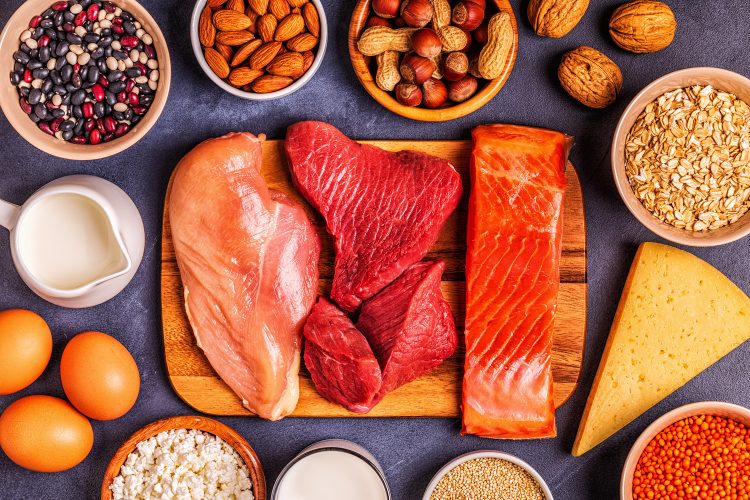
Carbohydrates:
- Whole Grain Bread (28 slices)
- Multi-grain Waffles (28 waffles)
- Bagels (28 bagels)
- Rolled Oats (14 cups)
- Muesli (14 cups)
- Quinoa (28 cups)
- Sweet Potato (56 cups, cooked)
- Brown Rice (56 cups, cooked)
- Whole Milk (224 ounces)
- Fruit (e.g., bananas, apples, peaches, pears, oranges, kiwi, berries, mango)
Healthy Fats:
- Natural Peanut Butter (approx. 28 tablespoons)
- Almond Butter (approx. 28 tablespoons)
- Sunflower Seed Butter (approx. 28 tablespoons)
- Cashew Butter (approx. 28 tablespoons)
Dairy:
- Whole Milk (224 ounces)
- Low-Fat Cottage Cheese (56 cups)
- Greek Yogurt (28 cups)
Feel free to use non-dairy milk if preferred.
Vegetables:
- Broccoli
- Asparagus
- Green Beans
- Brussels Sprouts
- Cauliflower
- Zucchini
- Bell Peppers
- Onions
Fruit:
- Mixed Berries (approx. 42 cups)
- Sliced Strawberries (approx. 14 cups)
- Mango Chunks (approx. 14 cups)
- Pineapple Chunks (approx. 14 cups)
- Blueberries (approx. 14 cups)
- Apples (approx. 14)
- Oranges (approx. 14)
- Pears (approx. 14)
- Kiwi (approx. 14)
- Peaches (approx. 14)
Remember, this shopping list is based on the quantities and foods mentioned in the meal plan and may vary depending on your individual preferences and serving sizes. Make sure to adjust the quantities as needed to suit your nutritional requirements.
Additionally, don’t forget to include any seasonings, spices, and condiments that you may need to enhance the flavor of your meals.
5,000 Calorie Meal Plan – FAQs
Do you have a question about our 5,000-calorie meal plan or general bulking? That’s okay because we’ve got the answers!
1. Do I really need to eat 5,000 calories a day to bulk up?
5,000 calories per day IS a lot of food for the average person to eat. Most people won’t need the full 5,000 calories to gain muscle and weight. This is the sort of quantity of food professional bodybuilders eat to gain mass.
Using our Total Daily Energy Expenditure (TDEE) calculator, work out how many calories you need to consume per day to maintain your current weight, and then add 1000 to that number. This should be a good place to start your bulking diet. Adjust your surplus according to your progress.
2. Is eating so much food healthy?
Eating a lot of food can be healthy, provided you make good choices. Nutritionally, there is a lot of difference between eating things like Greek yogurt, fruit, vegetables, and lean meat and pounding down vast amounts of ice cream, French fries, and takeout burgers.
That said, such large amounts of food can cause gastric distress as your body struggles to digest and absorb everything you eat. Expect to feel full and even bloated a lot of the time.
If you are new to bulking, start with a smaller surplus and increase as you get used to eating more food.
However, some people believe chronic overeating can shorten your life, even if that food is healthy. That’s why life extensionists – people who want to live as long as possible – purposely under-eat.
3. Is it possible to bulk on a vegan diet?
Yes, you can bulk on a vegan diet. However, it may be challenging to consume enough protein as plant-based foods do not contain as much protein per serving as meat, fish, eggs, etc. You’ll need to consume lots of the following to consume adequate protein on a vegan bulking diet:
- Black beans
- Chia Seeds
- Chickpeas
- Edamame
- Hemp Seeds
- Lentils
- Pea Protein Powder
- Quinoa
- Rice protein powder
- Seitan
- Tempeh
- Tofu
4. Is bulking suitable for men and women?
Both men and women can practice bulking. However, it’s usually men who want to gain a lot of muscle and weight in a short time. That said, both genders may benefit from bulking, and its suitability depends on your training goals. However, most women won’t need to consume as many calories as their male counterparts.
5. Won’t bulking just make me fat?
Fat gain while bulking is all but inevitable. You can’t expect to eat so much food and not gain at least some body fat. That’s why most people follow a bulking diet with a cutting phase.
If you don’t want to gain fat, bulking may not be the best nutritional approach for you. Instead, consider a “lean bulk,” where you gain muscle more slowly but won’t accumulate so much body fat.
Read more about lean bulking here.
6. How long should I follow a bulking diet before switching to a cutting phase?
The duration of your bulking phase depends on your goals and progress. Generally, a bulking phase can last anywhere from a few months to a year. Once you’ve reached your desired body weight, you can then transition to a cutting phase to reduce body fat while maintaining your muscle mass.
However, take care not to fall into the perma-bulking trap, as that can be unhealthy and lead to excessive fat gain. Short bulking cycles are usually safer, more effective, and require a less intensive cutting phase as you won’t have so much body fat to lose.
7. Can I still do cardio while bulking?
Incorporating cardiovascular exercise into your workouts offers several benefits, including improved cardiovascular health, endurance, and better recovery. However, take care not to wipe out too much of your calorie surplus, which would undermine your muscle-building goals. If you are using cardio to minimize fat gain, you’ll probably get better results with less effort by reducing your food intake.
Read also:
- Sample 1,700-Calorie Meal Plan To Lose Weight
- 3,000 Calorie Meal Plan for Muscle Building
- Ultimate Bulking Workout Plan
- Lean Bulk Macros: How to Bulk Without Getting Fat
- High-Calorie Foods For Bulking
- How to Cut After Bulking: A Step by Step Guide
- Top 9 Supplements for Bulking Up
- The Bulking Calculator
Closing Thoughts
Eating 5,000 calories a day is a significant undertaking. As well as the financial cost, you’ll also need to spend time shopping, preparing, and cooking your food. All that eating will be time-consuming, too. In fact, it’s no exaggeration to say that the workouts are the easiest part of most bulking programs!
However, if you want to build muscle and gain weight, bulking is arguably the fastest way to do it. You can gain in months what might take years on a lean bulk.
Bulking is not for everyone and may not even be necessary if you are making good progress on a more conservative diet. But, if you are stuck in a rut and can’t build muscle or gain weight, a few months on a gaining plan could be just what you need.
Do you need to consume 5,000 calories a day to build muscle? Probably not, but this guide explains the principles and strategies you need to gain weight fast. Adjust our plan to match your personal needs and goals.

